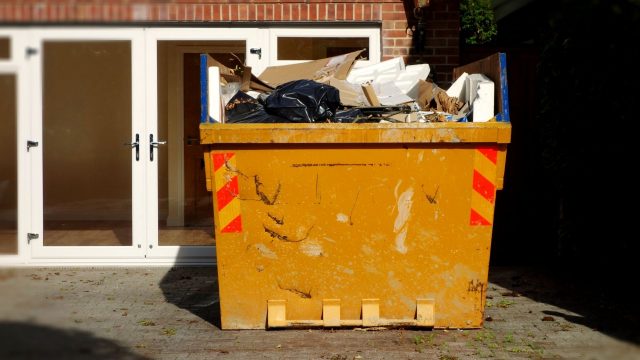Every single time that we unpack a product that has been wrapped in plastic, we are contributing to the generation of waste that is not going to be recyclable. This type of waste is the main reason why we are dealing with alarming environmental issues related to waste management.
We produce an overwhelming amount of waste worldwide each year and this is something that has always been a concern regarding our environment. The biggest problem is that the amount of waste we produce is largely non-recyclable and this means that we need to be able to look for ways to reduce the amount of waste that we are creating on a daily basis.
These alarming statistics should give you some perspective
- The world is producing an average of 2 billion metric tons of solid waste every single year.
- It is estimated that those numbers will rise to at least 3.5 billion tons per year by the time we reach 2050.
- At least 40% of all the waste we create across the globe is not being properly managed.
- High-income countries have around 2% waste mismanagement, while low-income countries are dealing with over 90% waste mismanagement.
With those kinds of numbers, it can be difficult to even consider that all of this waste is accumulating year after year. Not only that, but most of it will remain largely unchanged for centuries and this means that landfills all over the world are running out of space faster than they are decomposing existing materials.
The largest concern is this type of situation is that most people are not even aware of those numbers and statistics because this is a problem that is not happening in their backyards.
How much of it is recycled?
Unfortunately, the amount of waste that is recycled is overwhelmingly low in most cases. It is estimated that at least 79% of the waste that we produced worldwide is not being recycled. This means that most of this waste is actually going into be accumulating in landfills and open areas for decades and even centuries.
On a positive note, the amount of recycled waste in the UK has been as high as 44% in recent years, with fluctuating numbers depending on certain factors, but this means that the UK population is becoming increasingly aware of the importance of recycling.
The biggest concern is that a large amount of this waste is made up of plastic, and all plastic waste takes hundreds of years to decompose. This is the reason why so many environmental campaigns are so invested when it comes to raising awareness about plastic consumption.
The more we start to create a culture that looks for ways to minimize plastic use, the lower the percentage of non-recyclable waste is going to be. This is very important and the more people start getting involved, the higher the chances are of having a significant amount of positive impact on the environment.
Waste management is a collective responsibility
Just imagine all of that waste sitting in landfills and in some cases, the dumping sites are not taking proper measures and the rubbish is collected but not buried. This alone creates a very serious hazard that can be quite damaging to the environment.
The main concern with waste management is that the average person is not doing all they can to reduce the waste that they create day after day. This is a large problem as our collective actions are going to have the deepest impact in the world, but we need to raise more awareness to make substantial changes.
How to raise more awareness for individual change
The efforts of a few may seem like they are useless for environmental protection, but this kind of thought process the reason why so many people are not involved. This is also caused by the hectic lifestyles that most people are experiencing in the modern world. They feel that they hardly have time for themselves and their families, and they don’t give too much thought to the environmental consequences of producing too much waste.
The best way to encourage them to change their habits is to remind them that each person that becomes environmentally aware is already creating a huge change. The way one person behaves in terms of environmental responsibility is always going to have a positive effect on others. This is the reason why setting the example is so important in this kind of situation.
A person does not have to become an active waste management advocate to help make a difference. All that they have to do is start setting an example in their communities and their actions will speak louder than any words. All it takes sometimes is for one person to start a movement and this can create a whole community of people who are aware of the waste management and recycling problem the world is facing.
Recycling bin contents are not always fully recyclable
Another issue is that many recycling bins are not strictly used for recyclable waste and contain contaminated materials that are only going to contribute to the generation of more waste for those landfills. This is why the recycling process needs to be reconsidered and done with more careful planning.
Using skips to properly manage waste
A good way to collect waste for proper distribution and recycling is to make use of Skip Hire in Glasgow. This is going to allow you to achieve optimal results with your effort for the initial disposal of the waste.
Final thoughts
How much waste is recycled year after year is going to depend on each one of us and the decisions we make. We could all blame others for not supporting the cause, but that mindset is the reason why so many people are not doing all they can to lower the amount of waste they are generating.
Once we are able to individually realize the impact that we have in terms of waste management and recycling, we are going to start to see some amazing results that will lower the percentages of non-recycled waste that we produce. Remember is not so much about how much waste we produce, but about how much of it can be recycled.
Every single action towards proper recycling and waste management is important!













